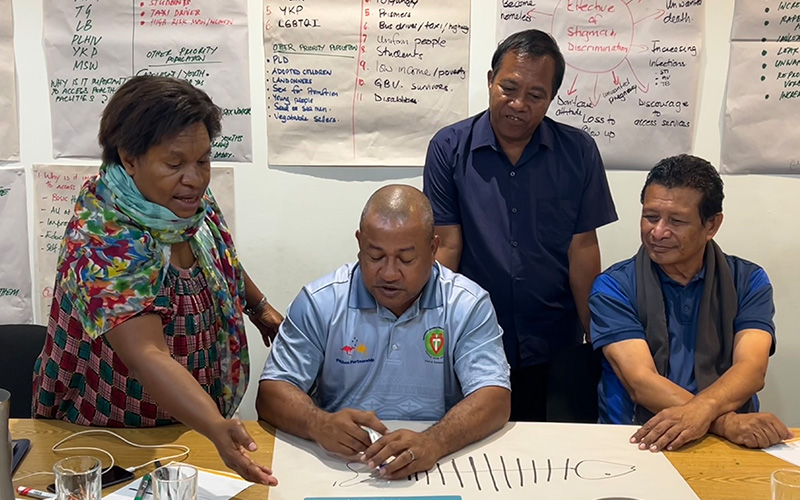
It’s estimated more than 1% of people in Papua New Guinea (PNG) are living with HIV, 35 years after the first case of HIV was recorded in the country in 1987.
Since 2017, Burnet has been working with the Catholic Church Health Services (CCHS) of PNG, ASHM Health, and Igat Hope to strengthen the country’s response through the Sexual & Reproductive Health Integration Project.
As part of these efforts, Burnet and CCHS co-developed the Key Population Sensitisation Manual, a first-of-its-kind training resource to inform healthcare workers about populations most at risk of HIV.
In PNG, key population groups include men who have sex with men, transgender individuals, as well as sex workers — groups that often face stigma and discrimination when accessing healthcare services.
Dean Cassano, Burnet technical adviser of the project, said social attitudes and systemic barriers limited access to HIV prevention, testing, and treatment.
“The manual allows healthcare workers to gain a deeper understanding of key populations, the stigma and discrimination they experience daily, and how these challenges impact both community health and the national HIV response,” he said.
A distinctive feature of the program is that it is delivered by trained members of these key population groups, ensuring their voices, experiences, and expertise remain at the centre.
Burnet hopes to adapt this successful model for Fiji, where similar challenges exist.
Fiji is now experiencing the fastest-growing HIV epidemic in the Pacific. Last year, the country recorded more than 1,500 new HIV cases, compared to 415 the year before.
“It’s essential that people have the knowledge and tools to live well,” Mr Cassano said.
“So alongside partners in Fiji, we’re working to develop a similar, practical toolkit tailored to the local context.
“It will offer relevant, accessible information and support people living with HIV to make informed decisions about their health and wellbeing.”
Your donation will directly support the development of this vital toolkit in Fiji, as well as the training and expansion of a peer-led network of counsellors and community support.
It will also help us reach communities in Fiji and PNG with improved access to life-saving diagnostic tools, HIV treatments, and specialised care and support.
To support this critical project and find out how it can change lives, visit hivepidemic.burnet.edu.au
